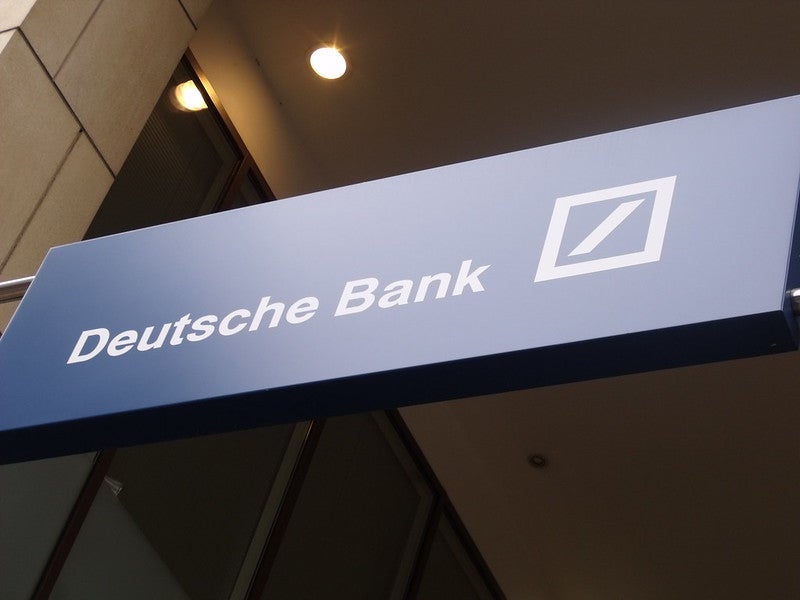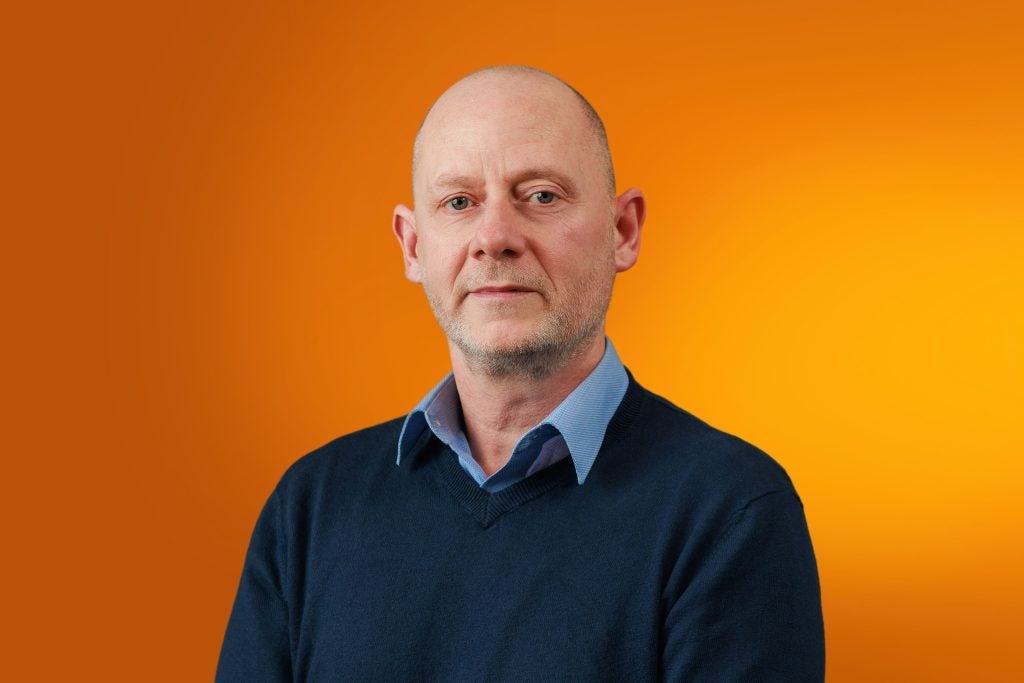Jean-Francois Mazaud has been at the helm of French lender Societe Generale Private Banking for more than 18 months now and after a long period of strategizing about how to take the business forward he has a plan of attack. In an exclusive interview Nicholas Moody meets the man behind the bank.
Behind the scenes he’s been intensely busy, alongside his deputy CEO, Patrick Follea remodelling and repositioning the French stalwart. This repositioning casts off some of the lofty targets from Ambition 2015, the bank-wide strategy to increase AUM to 150bn AUM by 2015, and puts in its place a strategy which looks to play to the bank’s strengths leveraging its retail networks in France and internationally, making more of its link with the Corporate Investment Bank.
Mazaud himself is a lively and engaging CEO. "Have fun and do it, take ownership" are a couple of mantras of his that he’s trying to engender in the private bank, with Societe Generale group due to celebrate its 150th anniversary in 2014.
Mazaud has also helped steady the ship in recent quarters. Net banking income at Societe Generale’s private banking increased to 436 million in the first half of 2013, an increase of 19.2% from first half of 2012. The bank’s cost-income ratio has also trended the right way, dropping from 90% in the second quarter of 2012 to 70% a year later.
Project JV with French retail networks providing the blueprint for international expansion.
This model was piloted five years ago, with 11 centres opened over that period, when the private bank established a joint venture with its retail network, under leadership of Patrick Follea, the bank’s current Deputy CEO and Head of Private Banking France. A private banking centre is established inside the retail bank with both sides sharing the costs and revenue.
How well do you really know your competitors?
Access the most comprehensive Company Profiles on the market, powered by GlobalData. Save hours of research. Gain competitive edge.

Thank you!
Your download email will arrive shortly
Not ready to buy yet? Download a free sample
We are confident about the unique quality of our Company Profiles. However, we want you to make the most beneficial decision for your business, so we offer a free sample that you can download by submitting the below form
By GlobalDataMazaud and Follea are very excited at the potential, pointing to the fact that it generated more than 1 billion each year in AUM in France alone. These new clients are captured by a team of 40 wealth planners who go out looking for clients who need wealth planning advice. Mazaud explains: "(France) is a country where everything starts with tax and law."
"They really are the best experts in the country in this area of personal planning schemes. They try to organize the wealth at each key moment of clients’ lives, either when they sell their company or when a succession has to be organised, for example, they have developed a unique expertise in this field," says Mazaud.
The success of this joint venture with its retail network is why the French lender is looking to roll out the model internationally, in connection with its corporate investment bank, in Eastern Europe, Central Europe, the Mediterranean belt, and sub Saharan Africa – where the bank has on-the-ground presence. Mazaud says it’s still early days, with one JV set to launch in one country before the end of the year, possibly two. All up this retail-CIB pincer effort will be rolled out in 10 countries over the next 3-4 years.
"Our colleagues know these countries for decades. They know the markets, the potentials or risks, the pitfalls, and the opportunities. In these countries we are always a retail bank with corporate banking activity. So they have the connections with the entrepreneurs and the wealthy families," says Mazaud.
At the time of publishing, SGPB would not disclose where the first international retail-PB JV would take place, only indicating it was a "big" country. The strategy is similar to that of SGPB’s great local rival, BNP Paribas, which has used retail networks in its core European markets and the United States, Turkey, Poland, Germany, Tunisia and Ukraine, to establish private banking centres.
Rebalancing
Mazaud agrees that the strategy is consistent with what he observes globally in the private banking industry, chiefly a rebalancing between onshore and offshore.
"When you work in a group with leading retail-banking networks and a strong corporate & investment bank, you’re going to organise yourself so as to extract the full value from them. We clearly see the refocusing in action at the moment. Our private banking is back at the centre of the group," he says.
SGPB aims to have international offshore private banking in the key global centres and onshore presence in growing and developing markets. Substantial investment will also go into front technology systems, including its CRM tool, e-banking, portfolio systems, in the next four years. Mazaud won’t disclose the exact amount the bank is spending, only indicating it is likely to be tens of millions of Euros.
"We want to be at the top in terms of digitalization. The way we do business is going to completely change," says Mazaud, as he outlines that the second phase of the IT upgrade will probably focus on the core systems.
SGPB is clear that staff manning these private banking centres will be locals who will be provided with all the services. To this, Mazaud notes the build out of its business as a whole with the recruitment of about 40 bankers on a net basis in the next 12 months, including at Societe Generale Private Banking Hambros.
"Not only investment products and planning, and asset management or fund selection or strategy, but as well, know how, meaning training, operational models, advice on IT, and front office applications, compliance, risk policy," says Mazaud.
Harnessing existing resources and personnel is a core part of the strategy "to build the private bank at marginal costs." Mazaud estimates the initial cost-income ratio is at about 60% reducing by 8-10 points within three years.
Geographical strategy
What then of SGPB’s wider geographic strategy? Like many other global private banks it has continued to sell-off its peripheral business and retreat to its areas of strength.
In July, Sumitomo Mitsui Banking Corp (SMBC) agreed to buy French bank Societe Generale’s private banking business in Japan for an undisclosed sum, which was understood to account for about 3% of global AUM. In October last year, it sold the Canadian subsidiary it bought in 2008, Canadian Wealth Management Group (CWM), to Fiera Capital Corp, for an undisclosed amount. This followed on from the sale of its US interest, Rockefeller Financial, to RIT Capital Partners, which included about $25bn in AUM in May 2012.
Then in September, market rumours circulated that it was looking to sell its Asia Pacific PB, with AUM of between $12-15bn. This month PBI reported that the bank had received first round of bids from Standard Chartered, DBS Group and Bank of Singapore for its Asian private banking arm valued at USD $600 million.
Quality of clients
AUM gains have largely stagnated over the past year. In 2012, assets under management totaled EUR 86.1 billion at end-December 2012, up just +1.5% year-on-year. Mazaud explains that AUM growth slowed, while net banking income rose because the bank is currently going through a process of managing out assets that don’t fit with the bank’s strategy. He says going forward the bank is focused on quality of relationships and quality of clients.
Mazaud also acknowledges that the target of 150bn AUM in the next three years, as set out by Ambition 2015, the previous management’s strategy, is no longer on the agenda. Still he thinks reaching 120bn in the next 3-4 years is achievable if the bank activates its "growth engine" by powering up its retail bank and CIB JVs.
Here Follea emphasizes the importance of not underestimating the more traditional banking markets. SGPB has enjoyed success in France, despite the overarching Eurozone crisis. Follea also points to Luxembourg, which has positioned itself well as a centre of excellence providing high quality services to non-resident, declared accounts -particularly wealthy families, as well as to the UK, Monaco and Belgium.
CIB
The final piece of SGPB’s rehoned strategy is a topic that’s close to Mazaud’s heart, the increased collaboration with CIB. Before being appointed to head the private bank, Mazaud was deputy head of global finance at SG’s CIB for four years. The private bank has always called on specific parts of the investment bank, including its structure products business, for product.
Mazaud wants to see more and more introductions on primary market issues, IPOs, rights issues and bond issues, but also links with M&A, private equity and financing.
One new initiative is a unit, within the private bank in London, called Commodities Private Wealth. It has 10 correspondents who focus on the synergies between energy financing clients and private banking.
The bank has also been working to build out its Private Investment Banking offering which is aimed at ultra high net worth entrepreneurs with more than 200m in liquid assets who have a holding company or a family office. It launched in March 2012, headed by Galeazzo Pecori Giraldi, and has now been moved into CIB although it remains closely linked with private banking.







